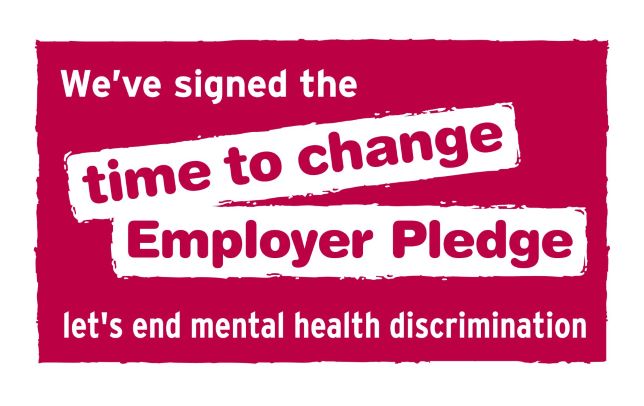1. Introduction
Equality, diversity, and inclusion are at the heart of Healthwatch Worcestershire’s values. This policy is underpinned by the Equality Act 2010, which outlines the legal framework
for creating a fair and more equal society. This vital piece of legislation protects people’s rights in law and keeps all of us from unfair treatment and discrimination.
As an organisation whose sole purpose is to give a strong and powerful voice to people who often go unheard, the Equality Act serves as the minimum for our work. We believe that everyone should have fair and equal access to health and social care. We recognise that some people and communities face compounding layers of disadvantage and discrimination, and we will ensure that our approach reflects the multiple inequalities that people face. We will work to prevent and challenge discrimination and inequality in all our functions.
2. Our approach
Our approach to these issues is more important than ever, as we seek to understand and mitigate the different and disproportionate impact that COVID-19 is having on people with protected characteristics under the Equality Act.
We will design our programmes of work to meet the diverse needs of the population we represent and challenge inequality in the following ways. We will:
• Work to ensure our evidence base more accurately represents the diversity of the communities we serve
• Involve and consult with individuals and groups with specific experience of issues relating to equalities, diversity, and inclusion as necessary.
• Develop local Healthwatch services through local and regional partnerships where appropriate.
• Conduct appropriate and proportionate equality impact assessments
• Constructive challenge where appropriate
3. Embedding Equality, Diversity and Inclusion across our work
The Equality Act underpins our approach and our commitment to:
• Eliminate discrimination, harassment, and victimisation
• Advance equality of opportunity
• Foster good relations
At Healthwatch Worcestershire we need to understand the effect of our policies and practices on equality and consider their impact on the whole population. Under the Equality Act, the relevant protected characteristics are:
• Age
• Disability
• Gender reassignment
• Pregnancy and maternity
• Race (including ethnic or national origins, colour or nationality)
• Religion or belief (or no belief)
• Gender (men, women, other)
• Sexual orientation
• Marriage and civil partnership (only concerning eliminating discrimination)
• Caring responsibilities
We understand that some people fall into multiple categories and therefore may well experience intersecting levels of inequality. In addition, we also recognise that socioeconomic factors have an extensive impact on people’s experience of health and social care, and we will consider this in how we approach our programmes of work.
A. Influencing
We will ensure that the promotion of equality, diversity, and inclusion is reflected in all our influencing work. It will play a key role in helping set our business priorities for the year. Each individual proactive and reactive project will always be explored through an equalities lens to ensure that we deliver impact in showing how excluded communities experience health and socia care.
We will include the following principles:
• Analyse our evidence to identify issues within these topics that may disproportionately affect people with protected characteristics and create or perpetuate inequality. These will help us narrow down specific activities and develop concrete and actionable recommendations.
• Challenge to commissioners and providers including VCS partners at local, regional and national levels, in regard to their delivery of the Public Sector Equality Duty where appropriate and their collection of data to identify where inequality exists.
• Work with partners to understand the evidence we gather in more detail and create a strong voice together to extend and enhance our influence.
• Our reactive work will also have an equality, diversity, and inclusion focus. We will continually encourage the health and care system to have this focus. We will horizon scan to identify issues or proposed changes to the health and social care system that may adversely affect communities we do not always hear from.
• Where we see decisions being made across the health and care sector which we think will create new or compound existing inequality we will not be afraid to offer public challenge.
B. Research and Insight
We will take a proactive approach to ensure that our work reflects how disadvantage and discrimination affect people’s experience of health and social care.
We will continue to identify equality, diversity, and inclusion gaps in our data and access other data sources or where possible undertake a specific engagement to fill them, to ensure that we are building awareness of the needs of as many different communities as possible.
C. Communication
We will ensure that all our communications take account of equality, diversity, and Inclusion, and ensure that we raise awareness of Healthwatch Worcestershire among a broad range of communities. We will provide a platform for seldom heard voices to influence how health and social care services are delivered.
We will aim to target our communications to engage and support people from every section of the community.
4. Our responsibility as an employer
A. Recruitment & Selection
Healthwatch Worcestershire will develop a fair and transparent Recruitment and Selection procedure which attracts, recruits and retains the highest quality candidates and embeds
our principles from the start of employment.
Care will be taken to ensure that Job Descriptions/Role Profiles/Employee Specifications are written based upon essential and objectively justified criteria. Consideration will be
given to where vacancies are advertised to ensure all parts of the community are reached.
All candidates will receive fair consideration on the basis of individual merit and no candidate will be unfairly excluded. Candidate selection will be dependent upon a
candidate’s ability to do the job, based upon their experience, qualifications, past performance and/or potential for the job.
In order to identify groups that may be under-represented or disadvantaged, Healthwatch Worcestershire will monitor applicants’ ethnic group, gender, disability, sexual orientation, religion and age as part of the recruitment procedure. Provision of this information is voluntary and it will not adversely affect an individual’s chances of recruitment or any other decision related to their employment. The information will be removed from applications before short-listing, and kept in an anonymous format solely for monitoring purposes and to help the organisation take appropriate steps to avoid discrimination and improve Diversity and Inclusion.
B. Workplace Culture
We will foster a workforce culture that promotes and embraces equality, diversity, and inclusion, and we recognise that each individual adds value to a team. We know our strength comes from building on and valuing people’s differences as well as their similarities. By being inclusive we encourage all staff from many different backgrounds to be themselves and apply their own unique perspectives. We recognise that we need to draw on talent from all sections of the population to be innovative, creative and effective. We are committed to supporting our whole workforce to develop and deliver good quality work that meets the needs of everyone.
C. Management responsibilities
All management actions, including but not limited to recruitment, training, development, career progression, pay, terms and conditions, absence management, performance management, discipline and termination will be administered in line with the Diversity and Inclusion policy, thereby eliminating discrimination or prejudice.
Managers will lead by example, ensuring that their own behaviour is beyond reproach and
that Diversity and Inclusion is regularly discussed at 1-to-1s, team meetings and appraisals. Managers will ensure appropriate diversity training is provided to all staff as part of induction, ongoing and where specific further training needs are identified. Managers will encourage people to be themselves and support them to achieve their individual potential. Managers will take a zero tolerance approach to discrimination and will proactively and robustly challenge any breach of this policy, where appropriate referring to the Dignity at Work or Disciplinary procedures.
D. Role of staff and volunteers
This policy applies to all staff, including volunteers, interns, agency staff and temporary staff. All staff and volunteers are expected to follow the examples set by management in terms of appropriate behaviour and to treat all people they come into contact with through their work with equal respect and without discrimination or prejudice. Staff and volunteers are expected to undertake diversity training as required and to actively challenge any discriminatory behaviour shown by their peers and to raise any concerns with management.
E. Induction & Training
All staff will be trained on Diversity and Inclusion as part of their induction and will be required to undertake further training as appropriate.
F. Failure to Comply
Where individuals fail to comply with this policy, in the first instance this will be dealt with by management intervention. In more serious cases, Healthwatch Worcestershire Dignity at Work or Disciplinary procedures will be invoked.
5. Audit & Review
This policy is not contractual but is a current statement of Healthwatch Worcestershire’s over-arching commitment to Equality, Diversity and Inclusion in all policies and procedures affecting relationships and activities with staff and other stakeholders.
Clients and visitors to Healthwatch Worcestershire are covered by this policy as well as sub-contractors, partners and suppliers.
A review of this policy will take place annually unless legal, contractual, specific business requirements, operational changes or events necessitate an earlier review. Healthwatch Worcestershire reserves the right to amend this policy as necessary.
This policy will be subject to Equality Impact Assessment under the Public Sector Equality Duty Act 2010.
REVIEW BY: May 2025



